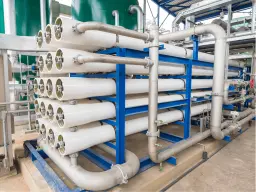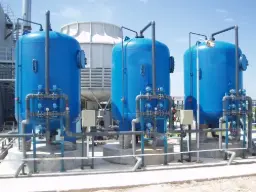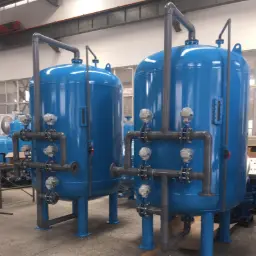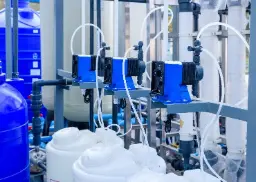Ingredient Water Treatment
In many food and beverage formulations, water is much more than just a solvent or a carrier—it is an essential ingredient that can significantly influence the final product’s taste, texture, and overall quality. Whether you’re manufacturing soft drinks, dairy products, sauces, or specialty foods, the mineral composition and purity of the water you use can make or break a recipe. Even slight variations in pH or the levels of calcium, magnesium, and other trace minerals can result in inconsistent flavor profiles, altered mouthfeel, or uneven product performance. Consequently, businesses that rely heavily on precise formulations pay close attention to their “ingredient water,” recognizing that it must meet exact specifications to ensure batch-to-batch consistency.
Ingredient water solutions typically involve advanced treatment systems that regulate mineral content, remove contaminants, and maintain critical parameters such as pH and total dissolved solids (TDS). By starting with purified water and carefully reintroducing specific minerals, manufacturers can replicate water profiles from different regions or achieve a consistent baseline that aligns with their brand identity. Moreover, controlling water composition helps mitigate production problems like scaling in process equipment, unforeseen chemical reactions with other ingredients, and flavor variances due to seasonal changes in municipal water sources. Ultimately, investing in purpose-built water treatment technology is an investment in product integrity, operational efficiency, and consumer satisfaction.
Related Products for Ingredient Water Treatment

Reverse Osmosis (RO)
Reverse Osmosis is a powerful method for creating an ultra-pure water base. By forcing water through a semi-permeable membrane, RO removes dissolved solids, heavy metals, and other impurities. This “blank slate” approach allows for precise mineral reintroduction, ensuring the final water composition aligns perfectly with recipe requirements.

Water Softener
Water softening resins can be configured to selectively remove or replace certain ions in the water. This technology is especially beneficial for applications where partial removal of hardness or other minerals is required. For instance, a beverage producer might opt to lower calcium content but keep some magnesium for flavor.

Deionization
While RO focuses on removing a broad spectrum of impurities, Deionization targets specific ions—such as calcium, magnesium, sulfate, and chloride—to achieve near-zero conductivity. DI systems are particularly useful when extremely low mineral content or pharmaceutical-grade water is needed, before carefully adding back essential minerals in controlled quantities.

Blending Stations and Dosing Systems
Once water is purified, specialized blending stations or dosing pumps can accurately reintroduce the desired minerals at precise concentrations. Automated control systems ensure consistency across large production runs, enabling manufacturers to fine-tune water profiles to exact specifications.
Advantages of Using Water Treatment Systems for Ingredient Water
- Taste and Flavor Consistency
Precise mineral composition ensures that each batch of product retains the same flavor profile. This is critical for brand identity, especially in products like teas, coffees, or flavored beverages, where minor variations can be noticeable. - Improved Texture and Mouthfeel
The right balance of minerals can influence body, smoothness, and overall mouthfeel. For example, certain levels of calcium or bicarbonate may be essential in dairy applications, while magnesium can enhance the perception of sweetness in soft drinks. - Reduced Production Downtime
Consistent water quality helps reduce equipment scaling and other maintenance issues, leading to fewer process interruptions. This is particularly important in high-throughput facilities where any unplanned downtime can be costly. - Regulatory Compliance
Maintaining strict control over water composition aids in meeting local and international quality standards. Such compliance is essential in regulated sectors like infant nutrition, health supplements, and premium beverage lines.
Challenges and Solutions
- Challenge: Seasonal Variations in Water Supply
Solution: Reverse Osmosis and Ion Exchange systems stabilize water parameters, ensuring that fluctuations in municipal sources do not disrupt production. Automated monitoring tools can make real-time adjustments as needed. - Challenge: Over-Purification and Loss of Essential Minerals
Solution: Some processes, like RO or Deionization, can remove beneficial minerals along with unwanted ones. Incorporating a blending station or dosing system allows manufacturers to restore a precise mineral balance for the final product. - Challenge: High Operational Costs
Solution: Advanced water treatment systems do require investment and upkeep, but proper system design—often combined with water recovery and recycling strategies—can significantly offset long-term expenses by reducing waste and improving efficiency. - Challenge: Ensuring Microbial Safety
Solution: Even with rigorous mineral control, microbial contamination remains a risk. Supplemental disinfection methods such as UV treatment or ozone systems may be integrated to safeguard ingredient water against pathogens. - Challenge: Process Complexity
Solution: Different recipes may demand different water profiles. Modern control systems with programmable setpoints enable rapid switching between multiple formulations, simplifying complex production schedules.
Frequently Asked Questions (FAQs)
- Why is controlling mineral content in water so important for recipes?
Minerals can affect taste, pH, and chemical reactions during production, making consistent mineral content crucial for maintaining flavor and quality. - Do all products need ultra-pure water before mineral reintroduction?
Not necessarily. While many prefer starting with very pure water for maximum control, some products benefit from partial treatment where certain natural minerals remain. - What if my local water supply is already good quality?
Even high-quality water can have seasonal or batch variations. Treatment systems guarantee consistency, which is especially critical for large-scale or highly regulated products. - Are these systems difficult to maintain?
Routine maintenance is required, but modern, automated systems make it relatively straightforward. Partnering with a reliable provider like Filtox ensures ongoing technical support and regular servicing. - Can I replicate water profiles from other regions?
Yes. With the right technology, you can precisely match the mineral content of famous water sources—an advantage for breweries or specialty beverage manufacturers seeking a unique flavor signature.